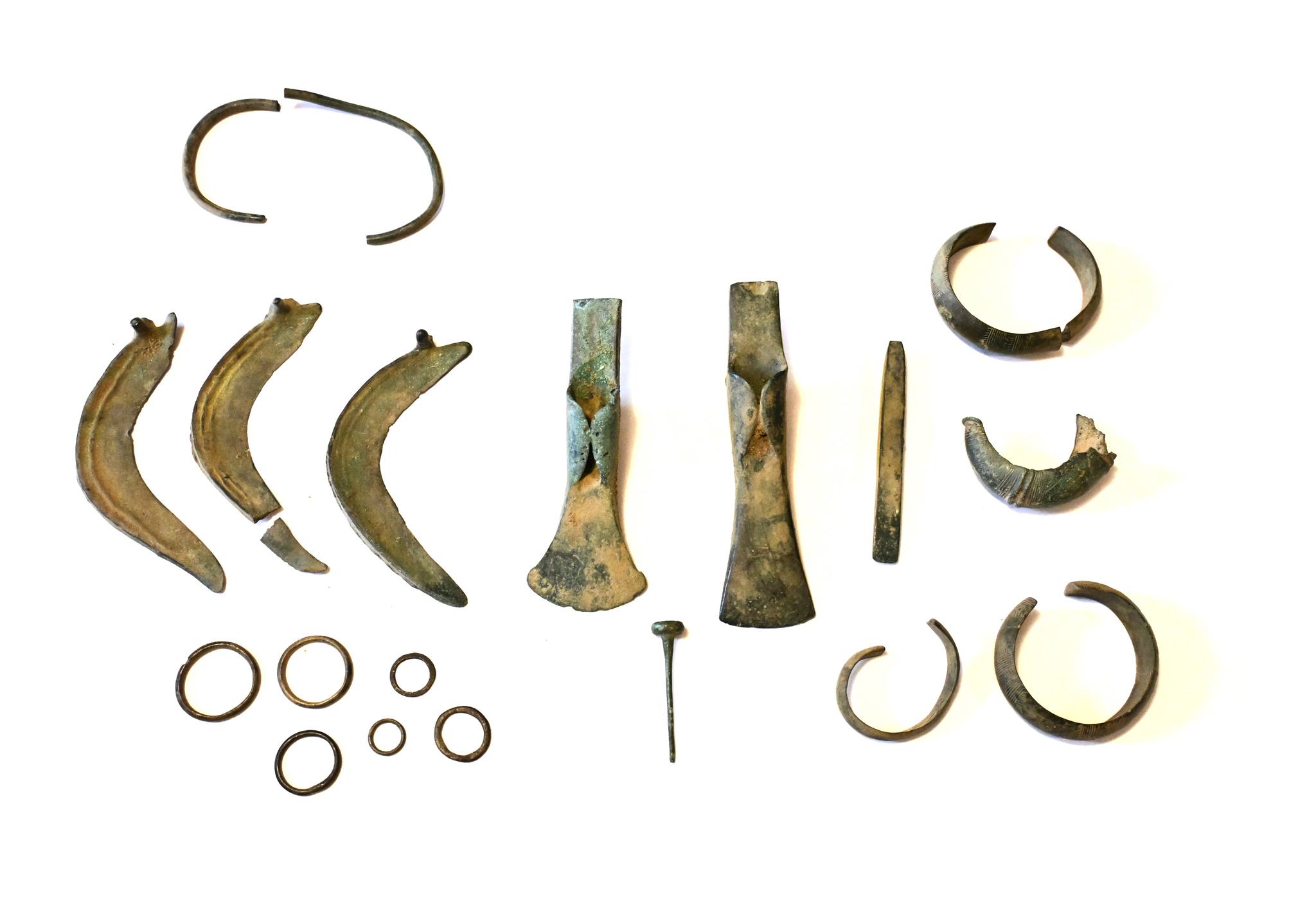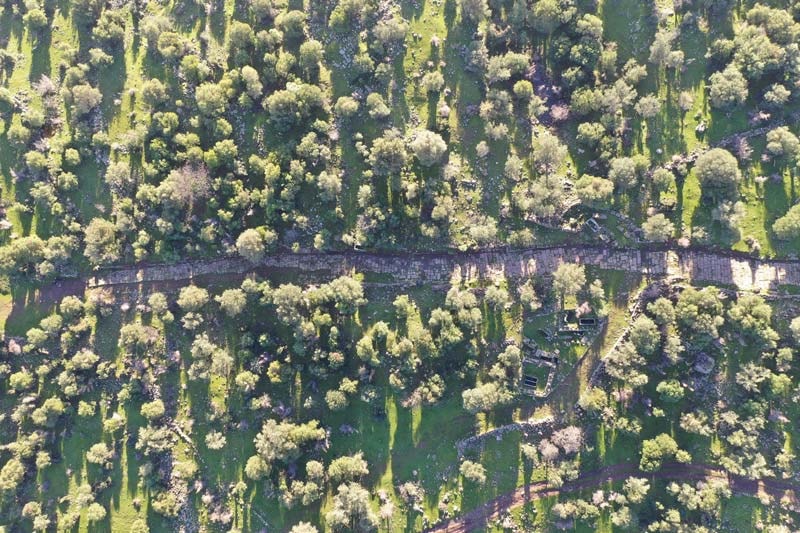
The frescoes of the thousand-year-old Beşaret Church are in danger of disappearing
The thousand-year-old rock-carved Beşaret church in the Koramaz valley, which is on the UNESCO World Heritage Tentative List, is in danger of disappearing due to neglect and damage caused by treasure hunters. Koramaz Valley is a valley in Kocasinan district of Kayseri province in Türkiye. Formed as a result of an earthquake fracture, the length

Archaeologists have discovered a rare medieval belt loop in Europe
Near the town of Kamień Pomorski in the West Pomeranian Voivodeship in northwestern Poland, a medieval belt loop used for hanging keys or pouches was discovered. So far, only 15 such belt loops have been discovered in Europe. The discovery was announced on social media by the Kamieńska Land Historical Museum, where the monument was

LDA Archaeologists discover two monumental mounds with wooden burial chambers dating back around 6,000 years
Archaeologists from the Saxony-Anhalt State Office for Heritage Management and Archaeology (LDA) have discovered two monumental mounds containing wooden burial chambers dating back some 6,000 years in Eulenberg, near Magdeburg. The mounds were found at the site in Eulenberg near Magdeburg ahead of construction activities by US chipmaker Intel since 2023. The mounds were located

The ‘Horoscope’ parchment discovered in the Judean Desert reveals the belief ciphers of a secret order
A parchment unearthed in the Judean Desert, east of Jerusalem, bears traces of an ancient order’s esoteric practices of astrology and mysticism. The artifact, which belonged to a secret society that existed thousands of years ago, is called the “Horoscope” parchment. The “Horoscope” parchment, distinguished by its use of reverse Hebrew script and a combination

A group of Bronze Age metal objects discovered in Poland
A local metal detecting group in Poland has discovered a group of Bronze Age metal objects, including axe heads and sickles. The discovery was made in an area known as the Lynx Field, located in Słubice, western Poland. The recovered artifacts consist of three sickles, two axes, four bracelets (three with engraved decorations), six rings,

2700-year-old children’s cemetery discovered in Tenedos Ancient City
A 2700-year-old children’s cemetery was discovered during the ongoing excavations in the ancient city of Tenedos under the direction of Prof. Dr. Turan Takaoğlu, a faculty member at Çanakkale Onsekiz Mart University Department of Archaeology. The excavations are being carried out with the support of the Ministry of Culture and Tourism, General Directorate of Cultural

The 10 historical artifacts kidnapped from Türkiye to Italy are being brought back to the country
Türkiye has added a new one to its successful efforts to return illegally smuggled cultural assets to the country’s soil. Minister of Culture and Tourism Mehmet Nuri Ersoy announced that 10 artifacts illegally smuggled out of Türkiye were seized by the Italian Cultural Police in Florence and handed over to the Ambassador of Türkiye to

‘Mysterious’ inscription on the bronze Dacia sphinx deciphered.
Discovered 2 centuries ago and stolen from a European count in 1848, the mystery of the inscription on the bronze Dacia sphinx statue has been solved. The bronze Dacian sphinx statue was discovered in Dacia, a Roman province corresponding to modern-day Romania. Dacia is the ancient name of Romania and has seen the domination of

The 1900-year-old ancient road of Aigai, the city of goats, unearthed
In the late 8th century BC, the 1900-year-old ancient road of the ancient city of Aigai, known as the city of goats, built on a rocky hill in Yuntdağı, whose ancient name was “Aspordenos”, was unearthed. The ancient city of Aigai is located within the borders of Yuntdağıköseler Neighborhood of Yunusemre district of Manisa today.

Statue heads of Dionysus and Aphrodite were unearthed in the Ancient City of Aizanoi
The heads of the goddess of love and beauty, Aphrodite, and the god of wine, Dionysus, were discovered in the ancient city of Aizanoi, located in the town of Çavdarhisar in Kütahya, which hosts the best-preserved Zeus Temple in Anatolia. The heads of Aphrodite’s statue and Dionysus’s statue were found during excavation works in the
